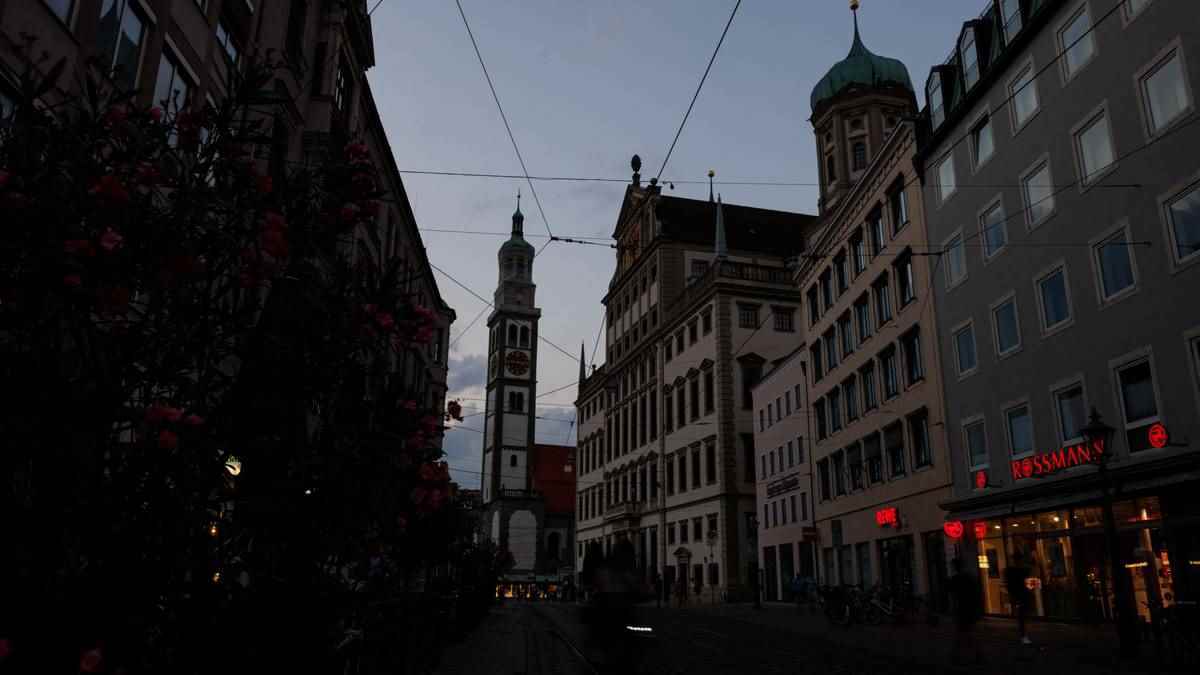It is not only in Norway that politicians discuss electricity support for businesses. The Minister of Industry in this country has said that the solution will come in September. Electricity prices have reached record high levels here in the north, but they are even higher in the UK and further south on the continent. The reason is Russia’s warfare against Ukraine and widespread drought. Like Norway, companies in Great Britain have also experienced sky-high electricity bills, which in several places have risen by 400 per cent. Even the very smallest must take action in England to save on electricity. Kindergarten owner with appeal – We can’t afford to have the heating on all day because it will ruin us, says Lee-Anne Lovegrove, the owner of the DaisyChain nursery chain to the BBC. She asks parents to put an extra layer of clothes in their children’s bags so that the kindergartens don’t have to wear the stoves all day. For households, countries in Europe have introduced various support schemes. But the maximum price for electricity, which both France and Great Britain have introduced, does not apply to businesses in England which are struggling. This is how Europe shields households from the energy crisis Great Britain: Most households have a maximum price for electricity. However, the analysts warn that the maximum price will increase sharply. The peak may come in April next year, when an average maximum price is estimated, which corresponds to annual expenses of around NOK 70,000. In October, each household will receive NOK 4,600 in electricity support. Low-income households, pensioners and people with disabilities also receive a grant of NOK 7,500. Germany: Germans who pay income tax receive a one-off subsidy of around NOK 3,000. In addition, families will receive NOK 1,000 per child in one-off support, an amount that doubles for low-income families. Over the next few years, Germany will support energy-saving renovation of buildings with over NOK 115 billion. France: The country has agreed to an aid package for electricity expenses, including for businesses, of around NOK 240 billion. France has committed to limiting an increase in regulated electricity costs to 4 percent. To do this, the government has ordered the electricity company EDF, which is 80 percent state-owned, to sell more cheap nuclear power. Italy: Since January, the country has introduced aid packages of around NOK 520 billion to mitigate the impact of sky-high electricity, gas and petrol costs for businesses and families. Italy has also put forward proposals in the EU for a cap on gas prices at European level to help limit price growth. Spain: The authorities have introduced a maximum price for natural gas used to generate electricity at several of the country’s power plants. Spain has also temporarily started subsidizing the power costs of coal-fired power plants in the hope of bringing down high prices in the short term. The country has introduced an aid package of NOK 160 billion in direct aid or loans to businesses and households. The Netherlands: The country has cut energy taxes for households. Denmark: The Danes have chosen to compensate consumers directly with the payment of money, and this is done through a support package worth 3.1 billion Danish kroner. At the same time, the country has chosen to cut energy taxes for households. The authorities have also introduced a so-called “heat check”, which means that subsidies worth 2 billion Danish kroner will be paid to around 400,000 households who are struggling to pay their electricity bills. Sweden: The country will compensate households that are hardest hit by rising electricity prices, and the government has set aside NOK 6 billion for various measures. (Source: NTB, Reuters and DPA) The British Chamber of Commerce has now asked the government for emergency corona-style aid to help businesses that are struggling. Businesses fear bankruptcy before the end of the year, due to the electricity crisis, writes the Daily Mail. Fears of “ghost streets” The newspaper quotes experts who fear that this could be the death knell for many of Britain’s high streets. The energy crisis could ‘shut down’ Britain this winter, leaving streets devoid of pubs, shops and restaurants. SAVE: Charlottenburg Castle in the dark in Berlin at the end of July. Photo: Paul Zinken / AP The newspaper has, among other things, spoken to local pubs that survived the corona pandemic, but which now have to close down. High purchase prices for fuel, food and alcohol are topped by ever-higher electricity prices. Proud monuments are blacked out The energy crisis is also big in Germany. A new coal-fired power station will be fired up again next week to make up for the energy shortage. Already at the end of July, Berlin started to save electricity in public buildings. The state government in the capital wants to set an example for energy saving by switching off the lighting of public buildings. Even magnificent castles built at the end of the 17th century, such as Charlottenburg in Berlin, are affected by the power saving. EARLIER: The silhouette of a woman in front of the illuminated Acropolis in Athens on August 1. Soon the lights will be turned off earlier. Photo: LOUISA GOULIAMAKI / AFP After the summer, Greece will switch off previously floodlit monuments as part of EU measures to reduce energy and gas consumption. The Greek minister said earlier this summer that municipalities must turn off the lamps in 10 percent of the street lights and turn off the lighting on monuments at 03:00.
ttn-69
Europe turns off the lights and dims the heaters – news Urix – Foreign news and documentaries

